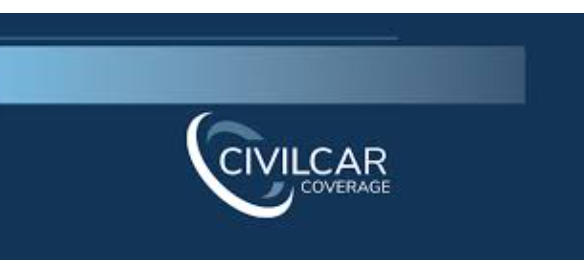What Is Civil Car Coverage (Liability Insurance)?
Civil car coverage, often referred to as liability insurance, is a fundamental part of auto insurance. It serves as the foundation of your policy and is required in most states. Here’s what you need to know:
1. Bodily Injury (BI) Liability Coverage:
– This component covers bodily injuries to others when you’re at fault in a car accident.
– It pays for medical bills, lost wages, and other related costs for people in another vehicle.
– Example scenario: You accidentally rear-end the car in front of you while checking your navigation system.
2. Property Damage (PD) Liability Coverage:
– PD liability coverage handles property damage caused by you in an accident.
– It includes repairs to other vehicles, fences, or any other property affected.
– Example scenario: You mistakenly hit the gas instead of the brake and crash into your neighbor’s fence.

Types of Civil Car Coverage
Let’s explore the different types of car insurance coverage. Whether you’re a seasoned driver or a new one, understanding these coverage options is essential for protecting yourself and your vehicle. Here are the key types:
1. Liability Insurance:
– Bodily Injury Liability (BI): Covers medical expenses for injuries to others if you cause an accident.
– Property Damage Liability (PD): Pays for repairs to other vehicles, fences, mailboxes, or buildings damaged in an accident.
2. Personal Injury Protection (PIP) and Medical Payments Coverage (MedPay):
– These cover your medical expenses after a car accident, regardless of fault.
– They also extend to injured passengers if you were the at-fault driver.
3. Uninsured Motorist Coverage:
– Protects you if you’re in an accident with an uninsured driver.
– It covers medical expenses and property damage when the other driver can’t pay.
4. Underinsured Motorist Coverage:
– Similar to uninsured motorist coverage but applies when the at-fault driver’s insurance limits are insufficient to cover your expenses.
5. Collision Coverage:
– Helps pay for repairing or replacing your vehicle if you’re in a crash.
– It covers damage to your car, regardless of fault.
6. Comprehensive Coverage:
– Also known as “other than collision” coverage.
– It reimburses you for damage caused by non-traffic-related incidents like fires, vandalism, hailstorms, and collisions with animals.
– Comprehensive coverage provides peace of mind against unexpected events beyond typical accidents.
7. Gap Insurance:
– Optional coverage that bridges the gap between your car’s actual cash value and what you owe on a loan or lease.
– Useful if your car is totaled and the insurance payout isn’t enough to cover your outstanding loan or lease balance.

Pros and Cons of Civil Car Coverage
Let’s explore the pros and cons of civil car coverage, also known as liability car insurance. Understanding both sides will help you make informed decisions about your auto insurance. Here we go:
Pros of Civil Car Coverage (Liability Insurance):
1. Peace of Mind:
– Knowing you’re well-protected can ease the stress of unforeseen events.
– Whether it’s a minor fender-bender or a more significant accident, liability coverage provides a safety net.
2. Financial Safety Net:
– Liability insurance can save you from digging into your savings for repairs or liabilities.
– If you cause an accident, the coverage helps pay for medical expenses, property damage, and legal costs for others involved.
3. Flexibility:
– Customizable plans mean you get what you pay for—nothing less.
– You can adjust coverage limits to suit your needs and budget.
Cons of Civil Car Coverage (Liability Insurance):
1. Cost:
– Higher protections come with higher premiums.
– While liability insurance is essential, it doesn’t cover damage to your own vehicle.
– Consider additional coverage options if you want more comprehensive protection.
Remember that liability insurance is often a legal requirement, especially if you’re financing or leasing your car. Weigh the pros and cons based on your situation and choose wisely!
Customers Reviews of Civil car coverage

Civil car coverage insurance reviews shed light on the pros and cons of this type of insurance. Let’s explore what they reveal:
- Reliability and Comprehensive Protection:
Civil car coverage insurance is considered reliable and comprehensive. It shields your car from unforeseen accidents, damages, and theft. If you’re looking for robust protection, this type of coverage can be a good choice.
- Unbiased Opinions:
Reviews provide insights from other policyholders. You can learn from their experiences, both positive and negative, to make an informed decision about whether civil car coverage suits your needs.
- Identifying Quality Providers:
By reading reviews, you can identify reputable insurance providers offering civil car coverage. Look for companies with a good track record in terms of customer service and claim settlement ratio.
4. Key Features to Consider:
- Coverage Limit: Understand the maximum amount the policy will pay out.
- Deductibles and Premium Amount: Evaluate deductibles (the amount you pay before insurance kicks in) and premium costs.
- Additional Coverage Options: Some policies offer add-ons like roadside assistance or rental car coverage.
- Customer Support: Reliable customer service is crucial when you need assistance.
- Claim Settlement Ratio: Research how efficiently the insurer processes claims.
Liability Car Insurance Limits
Liability car insurance has coverage limits, which represent the maximum amount your insurer will pay out for bodily injury and property damage if you’re at fault in an accident. These limits are typically expressed as three numbers, such as 15/30/5:
1. 15/30/15:
– $15,000 of bodily injury/death coverage for one person per accident.
– $30,000 of bodily injury/death coverage for more than one person per accident.
– $5,000 of property damage coverage per accident.
Why Is Civil Car Coverage Important?
1. Legal Requirement: Most states mandate liability insurance. Driving without it can result in fines, license suspension, or legal penalties.
2. Financial Protection: Without adequate coverage, you risk personal financial disaster if you cause an accident. Medical bills, legal fees, and property repairs can add up quickly.
3. Peace of Mind: Knowing you’re protected against unforeseen events like accidents or property damage provides peace of mind.
Conclusion
In conclusion, civil car coverage provides comprehensive protection for your vehicle, safeguarding it against accidents, damages, and theft. By reading unbiased reviews, you can gain insights into the reliability of different insurance providers and make an informed decision. Remember to consider factors such as coverage limits, deductibles, premium costs, and customer support when choosing a policy. Whether you’re a cautious driver or simply want peace of mind, civil car coverage can be a valuable addition to your auto insurance portfolio.






